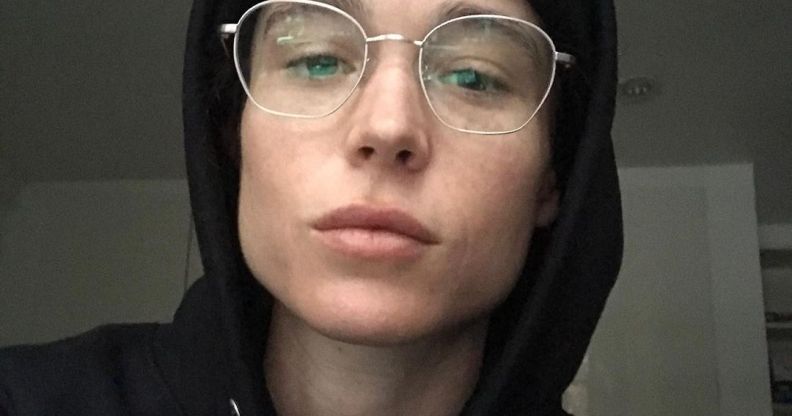Trans people have never been so visible. It’s why transphobia and attacks on our rights are worse than ever before

Elliot Page, the most visible trans person in the world. (Instagram)
Elliot Page, the most visible trans person in the world. (Instagram)
As Trans Day of Visibility approached this year, it was easy to wonder what it might be like to not be so visible for a while.
Like, what might it be like to not have a day of Brands Tweeting That Trans Women Are Women <3. No day of A Pastel Infographic To Teach You How To Not Misgender People. No day of How To Apologise If You Get Pronouns Wrong. No day for companies to market our identities back at us.
Since the “transgender tipping point” of 2014, when Laverne Cox appeared on the cover of Time magazine, trans and non-binary people have never been so visible. And it’s exhausting.
Trans Day of Visibility was started in 2009 as a day for trans people to be celebrated – up until then, the only trans-themed day was Trans Day of Remembrance, which is when we remember those of us who’ve died. It makes sense to create a day for uplifting transness.
And, of course, having more people aware we exist is good in some ways. There are upsides of visibility, such as the effects of high-profile trans celebs like Elliot Page coming out and acting as both role models to and advocates for young trans people. Another upside is that a few trans people will make some money by appearing on panels or giving Trans Day of Visibility talks – though others have been asked to do this for free.
But the positive examples are overshadowed, because the surge in visibility has vastly outstripped any improvement in the material conditions of trans peoples lives. Most trans people will not directly benefit from Trans Day of Visibility, but will continue to face transphobia in their daily lives.
And while trans visibility in the media has increased exponentially – much of it transphobic coverage of “trans issues” – transphobic campaign groups have proliferated and legal attacks on our rights have ramped up.
This week, Arkansas became the first US state to outright ban healthcare for trans youth; last December, healthcare for trans young people was similarly threatened by a transphobic legal case in England and Wales. Our lives are increasingly used to stoke the right’s beloved culture wars, with plenty of commentators making a living off of peddling misinformation about us in books and TV slots.
In the UK, life is so impossible for trans people that many are making the difficult choice to leave. The increased visibility we now “enjoy” has directly contributed to worsening transphobia, which underpins both physical violence, online abuse and attacks on our civil rights.
What might it be like if the energy and attention that’s dedicated to Trans Day of Visibility was given over to the fight for trans liberation?
Because, just like Pride, Trans Day of Visibility has been largely co-opted by brands who use it to make themselves look inclusive. A lot of “trans allies” will speak today about their support for trans rights. But never mind magazine covers and corporate diversity and inclusion initiatives: what about joining our fight for better healthcare, jobs, housing and safety? There are plenty of trans-led charities and grassroots organisations that need money and resources.
As trans journalist Freddy McConnell argued recently: “[The] pattern of naivety and misguided optimism about trans acceptance among our allies and supporters must not continue. Trans people can not afford it when we are paying for it with our livelihoods, our health and sometimes our lives. We have to be honest with each other about the hate hunting us down.”
It’s this misguided optimism about trans acceptance that’s so dangerous, particularly on Trans Day of Visibility. The temptation must be strong to see a wave of pro-trans messaging as a sign that things are on the up for trans and non-binary people. But that’s not the reality, and when supporting Trans Day of Visibility is all that there is, it is emphatically not enough.
We need allies who’ll support trans initiatives working towards there being freely available, gender-affirming healthcare. Instead of Trans Day of Visibility, give us jobs. Give us safety. Give resources to trans-led organisations. Give us a break from being so relentlessly visible, and so relentlessly attacked.

